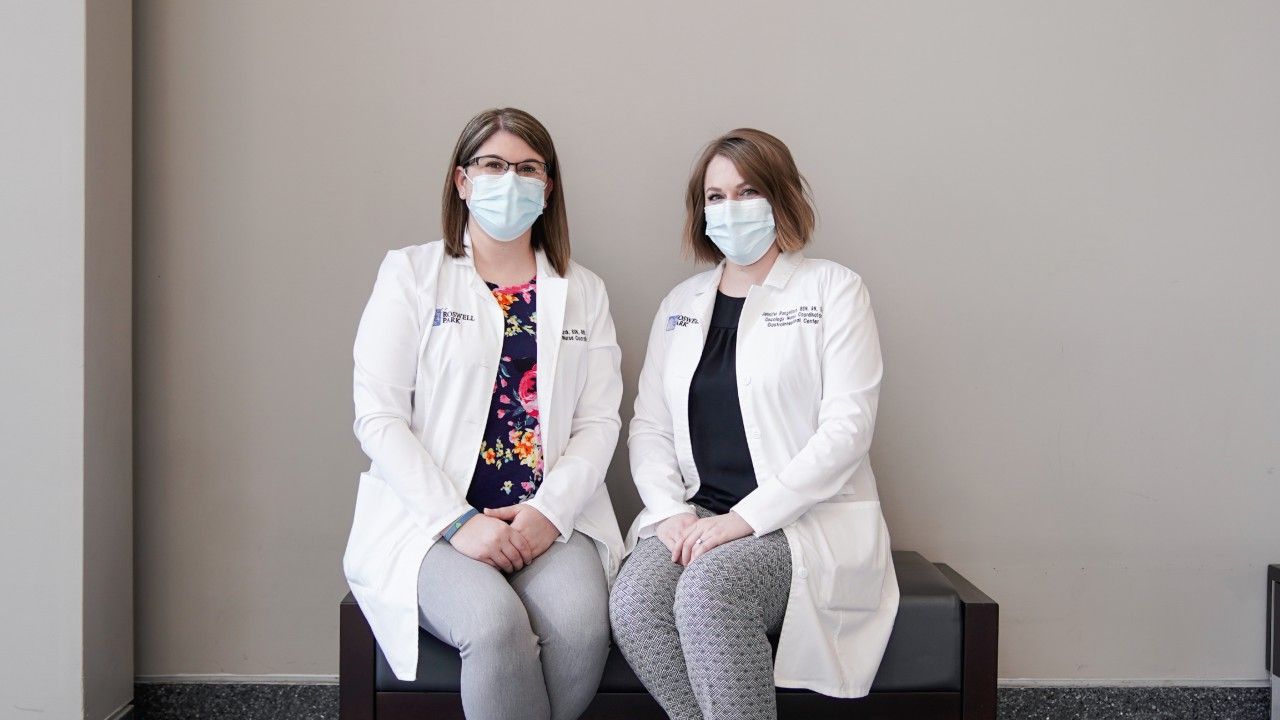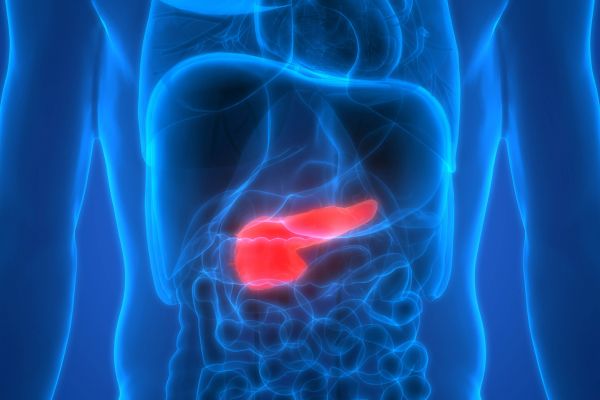Learning that you have pancreatic cancer is a jarring and difficult message to hear.
To help patients understand what’s going on, what treatment will entail and what to expect, they are introduced to Jennifer Pangelinan, BSN, RN, OCN, and Donna Olewniczak, RN BSN CMSRN, nurse coordinators within the GI clinic at Roswell Park Comprehensive Cancer Center who can answer questions and help them make sense of what’s happening.
Donna is usually assigned to work with surgical patients who might have early-stage pancreatic cancer, while Jennifer works with nonsurgical patients — those whose cancer is more advanced at the time of diagnosis.
“We try to meet all the new patients who come through the door,” Donna says. “I present myself as their go-to person for any sort of issue, including discussions about their treatment plan, helping them switch around appointments if they’re having issues. They really like the comfort of knowing that I’m the person they can contact, instead of just calling the clinic.”
“We place an emphasis on understanding the diagnosis,” Jennifer adds. “A new patient is usually very shell-shocked and sometimes that will last for the few first visits. We’re the support people. We can talk to family members if needed, to help them understand. My conversations at first are to reiterate what the provider has already told the patient, ‘This is your diagnosis, here’s your prognosis we’re looking at, this is what treatment options are available,’ and then helping them choose and manage their treatment options.”
Quality of life — and care — at the forefront
There’s also a big emphasis on the quality of a patient’s life as they go through treatment. If someone is having a bad reaction to treatment, the nurse coordinators can help work with the patient’s care team to figure out if there are other options or ways to manage their symptoms in order to make it to the next appointment or scan.
“We can do a lot of frequent check-ins to see how people are doing, what they’re experiencing, if they need to meet with someone from psychiatry or psychology, or whether that might help someone in their family,” Jennifer says.
“We can’t forget that the manifestation and effects of this disease are global for these patients. We have young patients who have kids, or their parents are still alive but they’ll be passing away first. They ask about genetic testing. All of those components, all the questions that come up — we try to be the first person to answer those if we can.”
They help keep their patients’ attention where it needs to be, in two-month stretches between scans, to stay present and focused on their families and friends, making the most of their time outside Roswell Park.
Go-betweens for patients and care teams
These nurse coordinators serve as the middlemen between a patient, their Roswell Park care team and sometimes any outside doctors involved in the patient’s care. Jennifer and Donna know and speak with all members of the patient’s Roswell Park team on a regular basis so they can relay messages between patients and their doctors and help explain any issues or clear up any confusion that might arise.
Both Jennifer and Donna have personal experience with pancreatic cancer, something they believe helps them relate to patients and their families when they get the news.
Why Roswell Park for Pancreatic Cancer?
Find out what makes Roswell Park unique for treating pancreatic cancer.
Learn More“That’s my driving force,” Donna says. “I can understand that initial blast of a conversation. I’ve been in their shoes. It’s not the easiest conversation, but it’s good to let them know we’re people, too — we have connections to other patients and family members. We get it.”
They’re grateful for the chance to help alleviate some of their patients’ stress and confusion and take some of the pressure off in terms of keeping their families informed.
Some patients call on them for help more than others, but from the first visit on, the two women are available and eager to help all of them understand their cancer journey.
“We’re the constant for them,” Donna says. “Regardless of who you’re dealing with or where you are in your treatment, I’m your person. I’m still here.”


